|
The final lesson I learned over the past year of school visits and interviews focused on the unique set of challenges and strengths each model faced. Being clear on these strengths and challenges, is critical to improving programs.
Transparency around the uniqueness of each model also allows us to understand differing priorities, while acknowledging common factors that do exist in innovative alternatives (which I'll get to in my post next week!)
Here is this quick lesson shared at the AERO conference:
0 Comments
Over the past year, one theme that kept surfacing for me across visits was the importance of contextual factors in designing learning experiences and determining priorities.
Although the importance of context to inform our understanding may seem obvious with global comparisons (ie. a school in rural Uganda compared to a school in urban Toronto faces clearly different circumstances), contextual factors can play an important role for schools even within the same city. Two distinct schools in New York helped me to demonstrate this first lesson: Context Matters.
Here is a brief explanation shared at AERO2016:
I look forward to sharing lesson #2 next week!
Over the past year, I have been fortunate to dedicate much of my time to visiting innovative programs in several countries, collecting stories as Himanshu at Dharavi Art Room aptly put it. My intention was to engage with courageous trailblazers; to showcase their approaches; and to raise awareness of key educational challenges that are being addressed.
Recently, I summarized some of the lessons learned for a presentation at the AERO 2016 conference in Portland, Oregon. Over the next couple of weeks, I am pleased to share these with you, beginning with the Intro below.
I am grateful to everyone who has welcomed me and my mochila full of interview gear so far. To all my gracious hosts, educators, students and communities: THANK YOU for being willing to share your struggles, your hopes, and your dreams for education. You helped to shape a rich year of learning and creating for me. I look forward to sharing the "lessons" from my talk, and more Educators Who Inspire as the journey (and the editing!) continue. Have you ever wondered what school may be like on the road? Have you ever wished you could break away from home and explore new roots? Recently (at AERO 2016), I chatted with one parent who decided to do just that. Along with his partner and their five year old son, Spencer has been spending this year driving around the country, learning and living along the way. Here are his responses to some questions I was curious about! (Feel free to follow Spencer's journey on Instagram: @spencerbabcock.) How would you describe the adventure you and your family are currently on? I would describe our adventure as two part. Part quest to find interesting new experiences and part quest to find a place. A place that has a community that we feel we can connect with and feels like the right spot to put down some roots. We live and travel around in a 1977 Dodge class c RV. We have renovated the inside and out, complete with solar so we can be off the grid. We tow a little Geo Metro car for side trips. We have also brought with us our big old Dutch Shepherd dog Baxter, five house plants, our bikes, and an inter-tube for floating rivers. Some might describe our journey as Road Schooling. What inspired you to take this step? We were inspired to take this journey after we got back to the U.S. after living and volunteering for a year and a half in an extremely remote part of Northeast India, in the Himalayas near Bhutan and Tibet. We were unsure where we belonged after that rich experience. The idea of exploring just seemed like the right thing to do. First, don't assume that you have no other options. Read, read, and read some more, about other options. Challenge your own assumptions about learning. Challenge how you think about the what, when, where, why, and how things "have" to be learned. Can you share a story of a day in the life of this on-the-road journey? Connecting with different people has been some of the most rewarding experiences in our travels and a great way to learn new things. One such experience was when we did a work exchange with a guy (A.) on his remote homestead in northern New Mexico. We learned so many things while we were helping A. keep up with many projects. Kai, my son, helped right along side us as we collected eggs from the hundred or so chickens, learned how to milk a goat, played with dogs, helped feed two Ravens, watered the many green house gardens and helped build a pumice stone house. We also learned about the solar and wind power system, bio gas digester that created gas for cooking, solar hot water heater for taking hot showers and the straw bale house where we cooked and hung out. There is so much to learn from other people. What are some insights you’ve gained from the past year? I think one of the biggest insights we have gained from traveling has been the constant opportunity to learn new things in authentic, up close ways. We learn from interacting with many different people, cultures, histories of places, geography, and ecology of the landscape. We can't help but have real experiences and learn from the things around us because we are immersed in them. We have found joy in taking time to really see more. Life on the road with no deadline or destination brings about a fundamental shift in how we think about exploring. It allows us time to take the slow side roads and pause to look at unique features. We have time to stop and play along the way. We can stop for an hour, a day, a week or whatever, as we wish. How does your son feel about this experience? Kai is really enjoying the experience. The other day someone asked him if we were on vacation. He said, "We are always on vacation!" At times it does feel like that. At another time he said he is ready for a house without wheels so he can have a fish. He said, "We can't have one now because the fish will get a headache from sloshing around and the water will spill out of the fish bowl." One day he will get his wish for a fish without the sloshing. What has your personal experience with education been like? My own experience with education growing up was mostly conventional public school. However, when I was six I asked my parents for art classes for Christmas. I didn't want just any art classes. I wanted to do "real" art like I saw masters from the Renaissance had created. We went to half a dozen different classes around town looking for that "real" art class. I finally found an after school art program that had artists from the community sharing their skills with kids. I loved it. I ended up taking classes there from age six to eighteen. The thing that was interesting about that art program was that it wasn't a teacher sitting in front of the class teaching. Each class focused on a subject like maybe, a person sitting for us for a portrait and a material like oil paint but then there was very little instruction. We would learn through intuition, practice, experimenting and experience. The artists were there to mentor and support us, but they were not there to lead us in a lesson. It was a big contrast to learning in school with everything being dictated by a teacher or a textbook instead of real experience. I think this translated into a different experience in college too. Often if a subject really interested me then I would put in much more effort then was required instead of just doing the minimum to get the "A" grade or to just pass the class. Later, when we had our son and I began to think about what "school" would look like for him. I read about many different education models. The more I read about self-directed learning approaches like unschooling, free schooling, democratic schooling, Agile Learning Centers, etc. It clicked for me because I had taken those art classes with the intuitive hands off approach to learning. I was excited when I realized that the same self-directed learning approach could be applied to learning anything. I knew what freedom in learning looked like and felt like. It feels so natural and right on so many levels, both as a parent and a learner. What are your hopes for your child’s education, and more broadly, for life? My hope for my son is for him to grow up loving many things: life, learning how to learn, people and the world around him. If he grows to love those things he will be a success. I think he will figure out how to earn money as a side benefit, but it will be less likely to control his life. I care more about why and how my son learns then what specific content he learns. I have to keep asking myself, is he learning something because he wants to learn it, or because I or someone else wants him to learn it? Of course I want him to learn some basic things but I feel he will learn those basics more deeply and remember them more fully if I hold the space for him and I'm patient and wait for his desire to learn something come from him. What advice do you have for other parents who are frustrated with conventional schooling models? Some thoughts that may be helpful to other parents who are frustrated with the conventional school model would be, first, don't assume that you have no other options. Read, read, and read some more, about other options. Challenge your own assumptions about learning. Challenge how you think about the what, when, where, why, and how things "have" to be learned. I would also encourage them to consider the thought that just because our society and culture has done something a certain way for a long time doesn't mean it really is the right thing for society in general or the right thing for every individual. If you are considering moving towards a more self-directed approach, be patient with yourself and your kids. It takes time to shift your mindset from an old paradigm. About Spencer:
Idea guy, artist, simplifier, traveler, lover of mountains and father of a puddle-jumping boy. My journey has taken me many places from working in a rice patty in Malaysia, to an art gallery in New York City, to building construction in the Phoenix Arizona sun. I've also worked with youth in a variety of ways, from helping struggling teens in wilderness therapy in the dessert, to teaching in a middle school classroom in a suburb, to helping kids paint pictures of elephants at the zoo. I have worked for nonprofits, corporations, and volunteered in many ways. I enjoy helping businesses and nonprofits tell their stories through design and video to support them in their efforts to build community and promote their work. I'm also passionate to find ways to support efforts to help more kids have the opportunities to learn through natural curiosity. These amazing experiences have introduced me to wonderful people, cultures, new ideas and expanded my love for the world. I can be found perusing the latest tech news, enjoying a climb up a mountain or thinking up something remarkable with colleagues and clients. Follow the family's roadschooling adventure on Instagram: @spencerbabcock
After a bit of downtime this summer, I am pleased to introduce you to Maysaa Bazna, the Director and Founder of Pono in New York City. Pono is a small alternative, democratic school that also places emphasis on outdoor education, with two days spent outdoors each week. The school also offers a sliding scale for tuition in an attempt to address access issues.
Maysaa has an interesting academic background, having earned multiple Masters degrees in reading and learning disabilities, and an Ed.D. in curriculum and teaching. Her research delved into the history of education and systems of learning across cultures and periods, giving her insight into what was valuable for learning today. Prior to founding Pono, she was a Professor at Columbia University's Teacher's college. After having a daughter of her own, Maysaa realized she was unhappy with the options available for her schooling, and thus was born the inspiration behind Pono (meaning to be in balance). I spent a lovely day with Maysaa and the other facilitators and kids at Pono, joining them on an outdoor day with a naturalist in Central Park, followed by a fun afternoon of them solving their way out of an "escape room". In this video, Maysaa speaks about the need to take children's interests in learning seriously, the value of visiting teachers, and how kids excel in academics when they are ready and eager to learn.
Maysaa is definitely an inspiring educator and I'm so happy to be able to share part of Pono's story!
As I continue my project of interviewing inspiring educators across several contexts and countries, my most recent adventure was in New York, where I visited programs ranging from a publicly funded school for girls in Washington Heights, to a sweet little independent alternative in East Harlem. As I traveled from the southern end of Manhattan in "Fi Di" (the financial district), through midtown, uptown to Harlem, then to Washington Heights, I was struck by the contrasts I experienced: skyscrapers in Fi Di versus tiny delis in Washington Heights ("Sigue mami!! Coffee?"); sleek high end shops vs piles of garbage on street corners; men in suits blankly staring past homeless people on subways; and my range of friends from freelance artists to those working at the UN. All of these contrasts helped to frame the context of each of the schools I visited, to better understand how schools served their communities. The primary goal of the all-girls leadership school I visited was to help every single student get into college. Many in the alternative space would scoff at that, explaining how grades are outdated and how college shouldn't be the end goal of high school education. (I know this, because I argue against grades all the time!) But after seeing these confident girls in action, giving us a tour, presenting at the school "STEM" fair, mentoring younger students, you realize the danger in confusing the means with the ends. Getting into college is a ticket to opportunity for these girls, to jobs and experiences that they or their families would not access otherwise. When you pay attention to the inequalities inherent in our economic and social systems, you understand why navigating these systems still matters for the vast majority of people. Why context matters. On the other end of the spectrum, the small independent alternative focused on a democratic approach, where students are actively involved in deciding what they will learn. They participate in two outdoor days every week (I was there on a day in Central Park with a naturalist). This model felt like a breath of fresh air. Here too, though, context matters. Parents who send their kids to this alternative actively sought an option that didn't involve grades, prioritize the child's freedom in learning, and who may have considered homeschooling otherwise. I also couldn't ignore the reality that most parents choosing this model come from a higher income bracket.
It is still challenging to compare models, but I am learning to acknowledge the priorities of each one. I had a fantastic time exploring New York's schools. I look forward to sharing spotlight videos from my time there in the coming weeks!
TVO (TVOntario) is currently running a doc series called "Why Poverty?", asking why a billion people around the world still live in poverty, and what can be done about it.
Last night's film, "Solar Mamas", shows us how women from income-poor communities all over the world are selected and trained to become solar engineers in a six month residential program at Barefoot College in India. They return after six months, bringing solar-powered electricity and income earning potential to their remote villages. Educational access and opportunity are themes that have been gnawing at me since watching India's Daughter on Netflix (profiling the infuriating rape case of Jyoti Singh in Delhi in 2012). So when I watched Solar Mamas, I was drawn into the story of this woman from Jordan, who faces strong resistance from her husband in pursuing the course. Seeing how the women connect and collaborate and really want to learn new skills, was inspiring. The film also opens with a provoking question: "Are women better at getting out of poverty than men?" Development experts such as Amartya Sen (my favourite Development Economist!) have long-touted the importance of education for girls in raising standards of living, decreasing infant mortality, increasing levels of health, and in increasing education levels for the next generation. Grameen Bank founder Mohammed Yusuf has also explained how women tend to invest money into their children's health and education at higher rates than men: When women start making money, the first beneficiary of her income is her children.. but it doesn't happen so quickly when the father is the income earner. There are a lot of very positive things when you address the problem of poverty through women.
As you'll see in the film, challenges with changing mindsets remain. Still, programs such as this one at Barefoot College are bringing power to communities and helping to awaken power within these women!
For more on Barefoot College visit their site, or check out Founder Bunker Roy's TED Talk here.
Watch the TVO doc "Solar Mamas" here (or on their website):
Meet Felipe Spath, co-founder of SOLE Colombia (Self Organized Learning Environments), the next in this Spotlight Series!
I met Felipe early one morning for a tinto (black coffee) in the Candelaria neighbourhood, the heart of downtown Bogota. Within minutes, he had connected me with other people doing great work in Colombia, and humbly shared his insights on rural education, technology, and innovation. We were able to film outside the coffee shop before campus became too noisy (with a few early skateboarders around!). In this video, Felipe talks about the importance of technology and tradition coming together, collaboration rather than competition in learning, and his hopes for more community-based, and tribe-based learning in the future:
Along with being a Co-Founder of SOLE (affiliated with Sugata Mitra's School in the Cloud initiative), Felipe is also a TEDx organizer in Colombia, a University educator and an "Associate Thinker" at th1nk.co. He lives in a rural area outside of Bogota, and has been engaged with rural development and sustainability issues for many years.
I really enjoyed hearing Felipe's unique perspective, and had a wonderful time in his undergrad class on Designing Purposeful Experiences at the Universidad del Rosario later that morning. Being part of a workshopping exercise with students (similar to a design thinking session) reminded me of how much I love the energy and ideas in post-secondary spaces! For more on Felipe's work, visit: http://www.th1nk.co/#.
Happy to present the second video in this Spotlight Series, my conversation with Veronica Puech, co-founder of Kalapa Learning Community just outside of Bogota, Colombia. I had a wonderful few days with the kids at Kalapa, who invited me to share in the digging that you see below (teaching me how to improve my technique!), in their maker space, and in the fantasy "mundo de los gatos" (world of cats!) that the youngest ones had me crawling around in :).
In this video, Veronica talks about the need for more integral and experience-based education, challenging our own beliefs as adults and educators, and the hope she finds in the range of innovative alternatives being developed around the world. Along with being a Co-Founder of Kalapa, Veronica comes from an interesting background of having earned an undergraduate degree in Economics, a Master's in NGOs and Development from the LSE, and has worked with organizations including Save the Children and Ensena por Colombia (Teach for Colombia). Having moved from large scale organizations to a small community-based environment is inspiring to me, as are the efforts of all five cofounders and also the facilitators at Kalapa!
To learn more about this special school, visit Kalapa's website. Special thanks to the facilitators, co-founders and kids at Kalapa, along with Schools Without Borders, for their support!
A few days ago, I arrived in Colombia to spend time exploring locally based alternatives in education with the support of Schools Without Borders (thank you SWB!). I first came here five years ago, and fell in love with so much of the country - the people, their passion, the mountains, plains, and love for life (all amidst the complexity of conflict and transition). This past weekend, I was grateful to be welcomed by one of my main connections here, Veronica Puech, a co-founder of Kalapa learning community, who I look forward to interviewing as part of this month's spotlight series. After a really nice day of catch ups with special characters in the city, we spent the weekend just north of Bogota in Suesca. The perfect setting to disconnect from our iPhones and reconnect with inspiring people (and the best cheese fondue!). Hosted by a couple working in design and educational architecture, and in the company of other educators, a business owner, and strong development perspectives, our conversations helped to frame the need for alternatives here in Colombia. To paint a broad picture of the complexity of issues here, I'll share some of what we discussed: The pressure to focus on test scores vs. a real need to improve math and language learning outcomes - Colombia is working towards membership in the OECD; As part of its accession to the OECD, PISA test scores taken by 15 year old students (you can try sample test questions here), are considered. Colombia's results in the PISA tests were amongst the lowest of the 71 countries who participated in the last round of the tests, and there are large gender gaps. This increases pressure to focus on test scores (outcome) rather than the methods of teaching and learning (process leading to better outcomes!). - There is a real need to increase competency in math and language skills, especially in public schools but the challenge is in how to do this effectively. A need for more "integral" education, and considerations for post-conflict settings - This topic really resonated with me, as I believe so strongly in the need for integral or more holistic education, that considers all aspects of personality (Intellectual, emotional, physical, spiritual) in the development of learners. - A need for more creativity in learning as part of this integral education - Understanding that students in post-conflict areas or settings need special considerations and integrated programs catered to their needs Challenge of (a lack of) political will and the (lack of) power of the Ministry of Education - Short terms in office, changing priorities, big bureaucracy make it difficult to implement change in the short or long term. - the Ministry of Education isn't very influential or powerful relative to other areas of government in Colombia. "Status" of education over quality of learning - Parents' concern with the reputation and status of the school over the true quality of the learning that is happening; reputation of the school represents status for some parents, and it is difficult to shake this mindset. Value of teachers and teaching as a profession - As in many other countries, teaching is not valued highly as a profession or career choice in Colombia, which results in not the most motivated or qualified people entering the field. - Moving towards more highly qualified and valued teachers (at the other end of this is the Finnish system for example) would help improve the quality of education. All of this led to...: The hope for solutions from smaller models! - The flexibility smaller models have to implement change and test different methods has potential in influencing the bigger system eventually - These smaller models need to show mastery of learning plus the ability to do this in an integral way in order to be adopted in other settings. I am grateful to all of my hosts this weekend, for the rich conversations and company!
I look forward to profiling some of the exciting work happening here in Colombia, starting with Kalapa in the coming week (..and hopefully improving my Spanish tambien :)) |
Categories
All
AuthorA passionate educator.. on a quest for a schooling model to love! Archives
August 2017
|
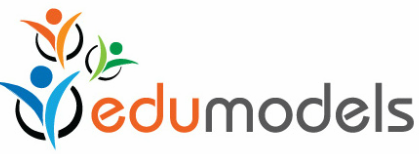

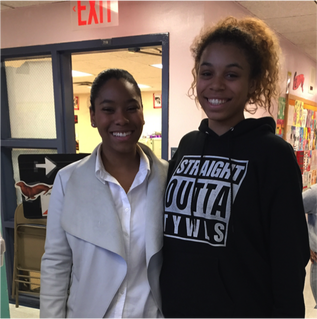
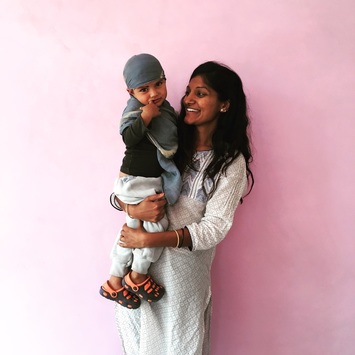
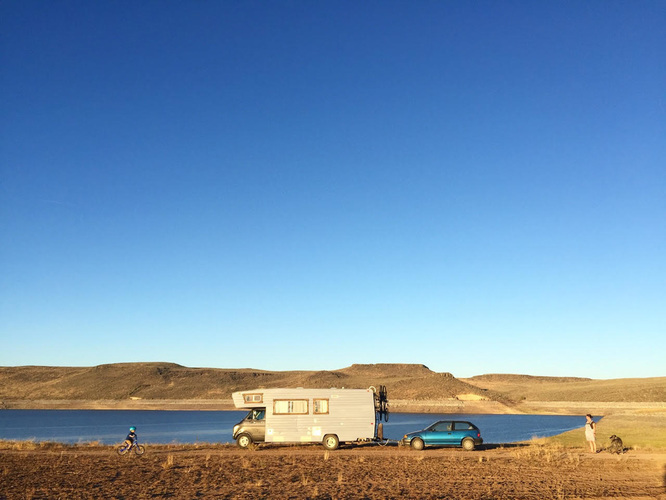
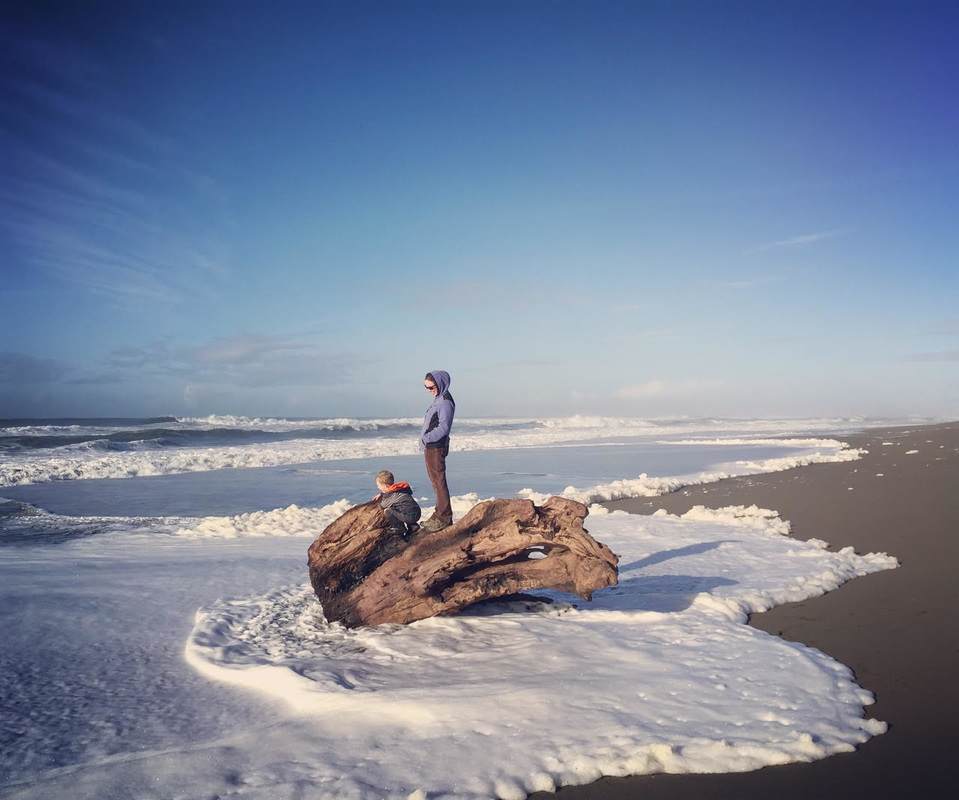
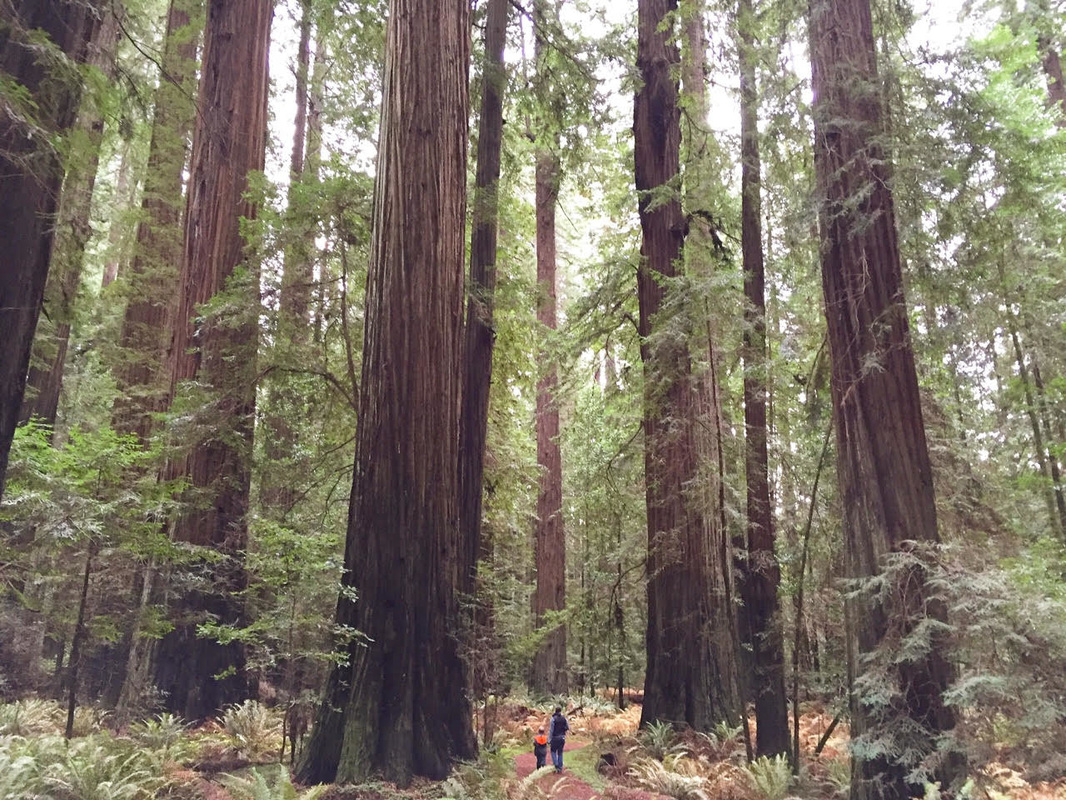
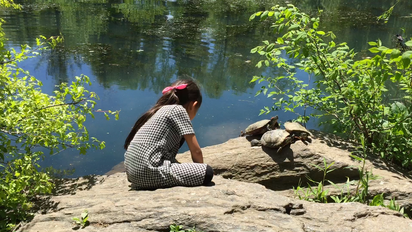
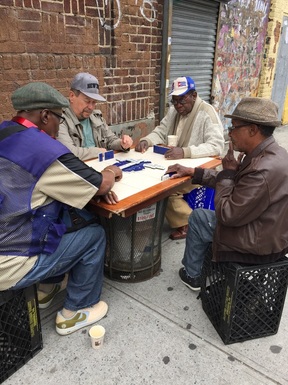
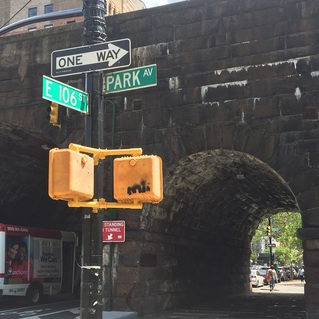
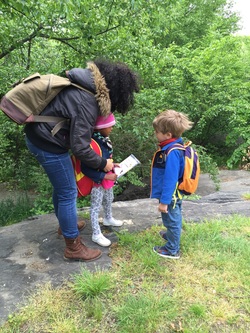
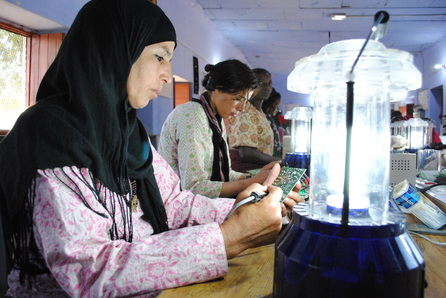
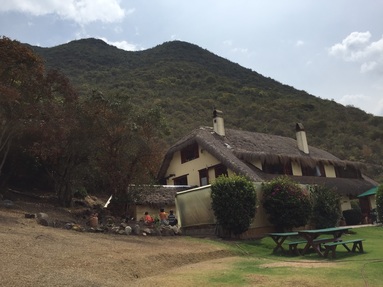
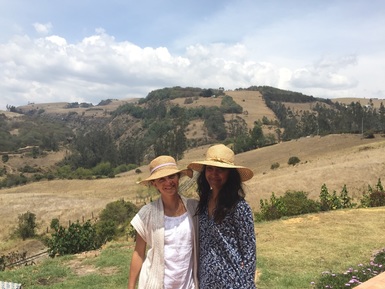
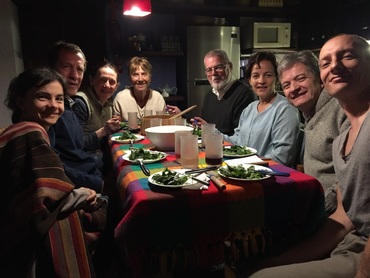
 RSS Feed
RSS Feed
